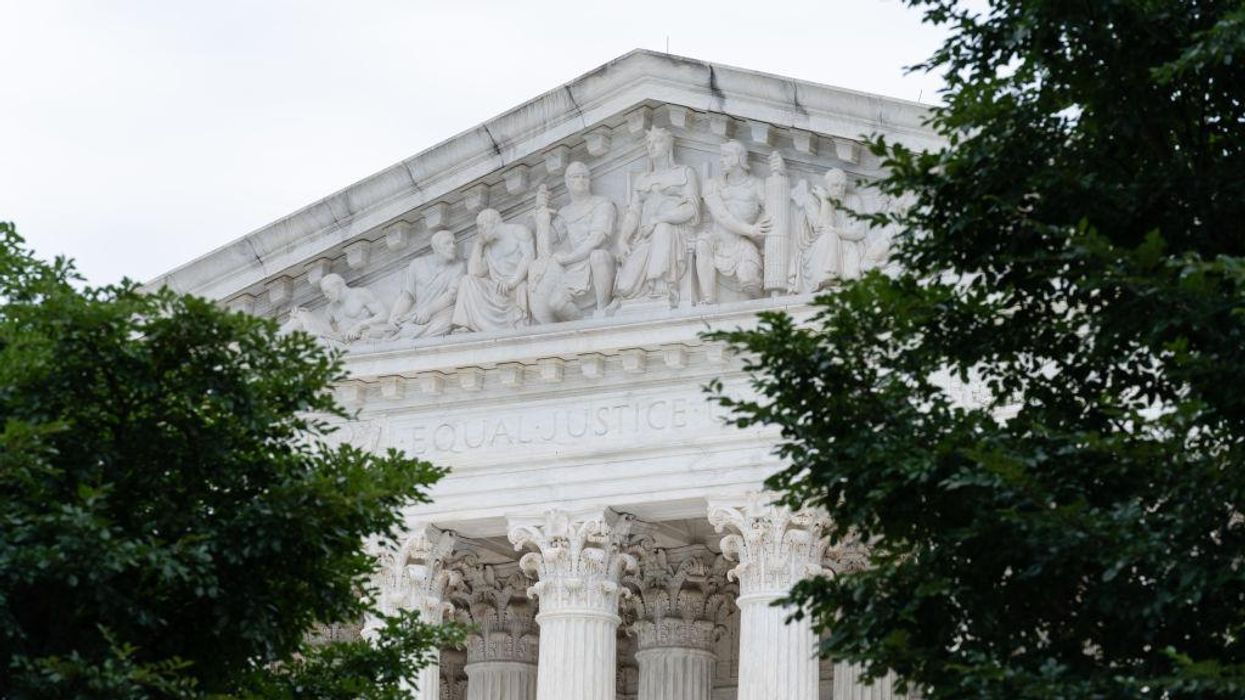
Eric Lee/Bloomberg via Getty Images

In a victory for religious liberty and school choice, the U.S. Supreme Court on Tuesday struck down a Maine law that unconstitutionally discriminated against sectarian schools.
The court held in a 6-3 ruling that Maine's prohibition on using private school tuition assistance for religious schools violated the Free Exercise Clause of the First Amendment.
The case, Carson v. Makin, concerned a tuition assistance program for parents who live in school districts that do not have a public secondary school for their children. The program made funds available to assist these families with private or charter school tuition, provided that the chosen school met state accreditation requirements and that it was "nonsectarian in accordance with the First Amendment."
The Maine law was a kind of state law known as a "Blaine Amendment" law, named for a failed amendment to the U.S. Constitution that would have prohibited direct government aid to schools that have a religious affiliation. These laws generally prohibit funding from state benefits programs from being given to religious schools.
A group of families that qualified for the program but wanted to use the tuition funding to send their kids to religiously affiliated schools filed a suit challenging the law. They argued that the "nonsectarian" requirement violated the Constitution, and their case worked its way up to the Supreme Court.
The six Republican-appointed justices in the majority agreed with the families. They held that because Maine offered its citizens a benefit, denying that benefit to families who wanted to use it for religious schools unconstitutionally discriminated against those institutions "solely because they are religious."
Chief Justice John Roberts authored the majority opinion. He wrote that the principles outlined in two recent cases, Trinity Lutheran v. Comer and Espinoza v. Montana, were sufficient to decide this cases. Those cases concerned a religious preschool in Missouri that was denied benefits from a state program and a Montana scholarship program that excluded private religious schools, respectively. In both of those cases, the court ruled in favor of the religious schools.
"[A]s we explained in both Trinity Lutheran and Espinoza, such an 'interest in separating church and state "more fiercely" than the Federal Constitution ... "cannot qualify as compelling" in the face of the infringement of free exercise,'" Roberts wrote.
"Justice Breyer stresses the importance of 'government neutrality' when it comes to religious matters ... but there is nothing neutral about Maine’s program. The state pays tuition for certain students at private schools — so long as the schools are not religious. That is discrimination against religion."
The three Democratic-appointed justices dissented.
"The First Amendment begins by forbidding the government from 'mak[ing] [any] law respecting an establishment of religion.' It next forbids them to make any law 'prohibiting the free exercise thereof.' The Court today pays almost no attention to the words in the first Clause while giving almost exclusive attention to the words in the second," Breyer wrote in his dissent.
In a separate dissent, Sotomayor accused the majority of making the separation of church and state unconstitutional.
"What a difference five years makes. In 2017, I feared that the Court was 'lead[ing] us .... to a place where separation of church and state is a constitutional slogan, not a constitutional commitment.' Today, the Court leads us to a place where separation of church and state becomes a constitutional violation," she wrote.